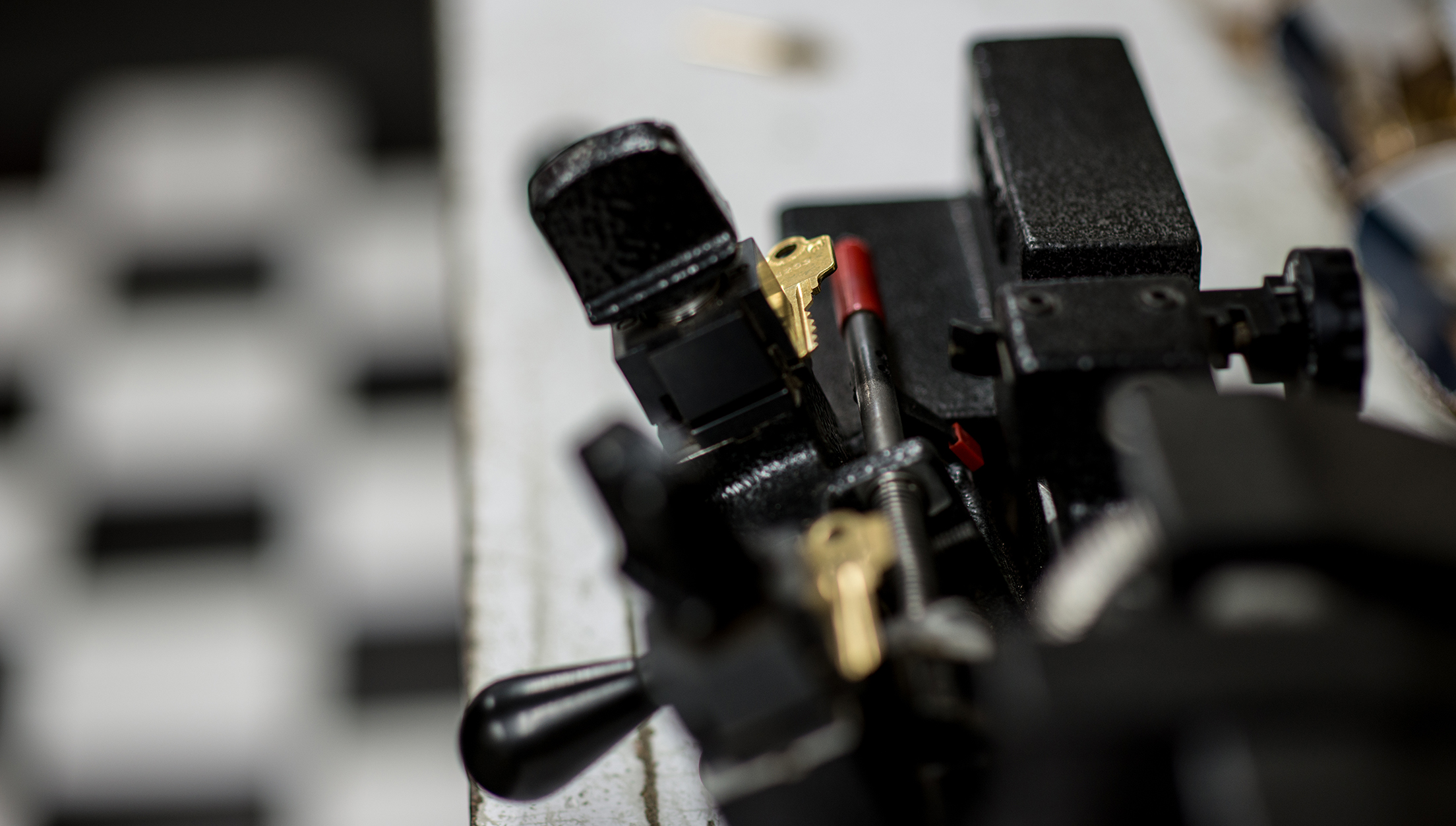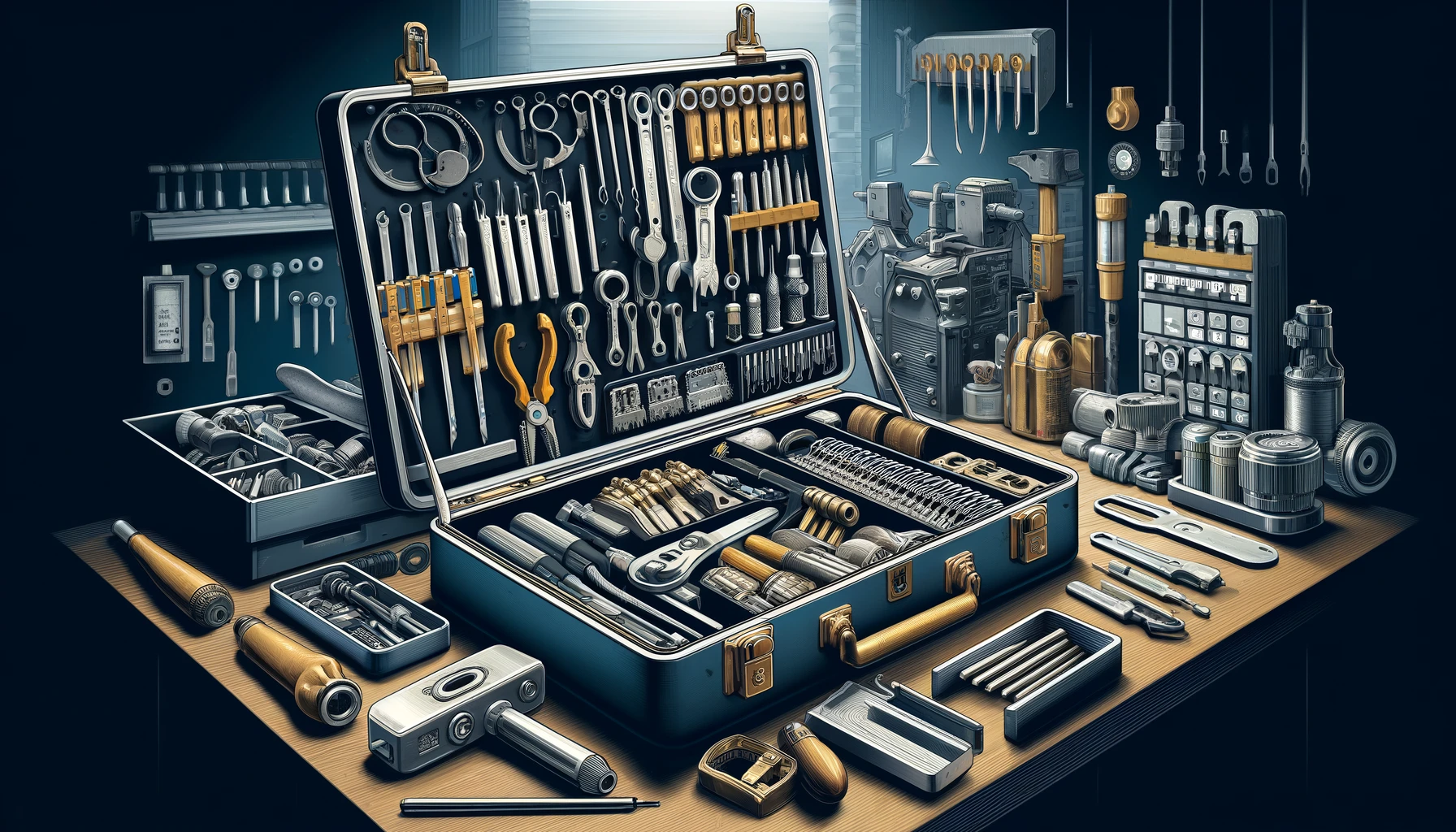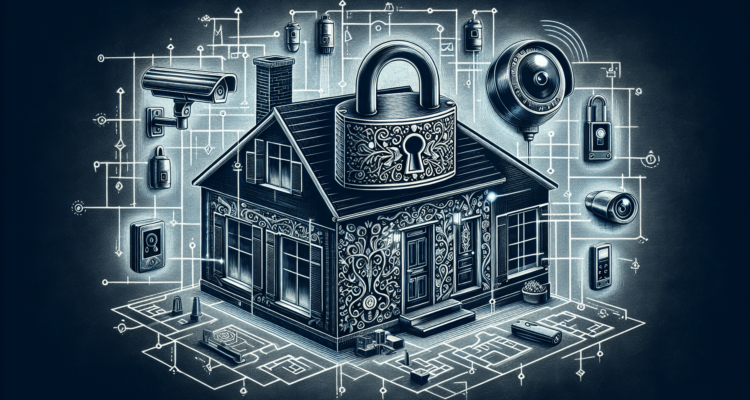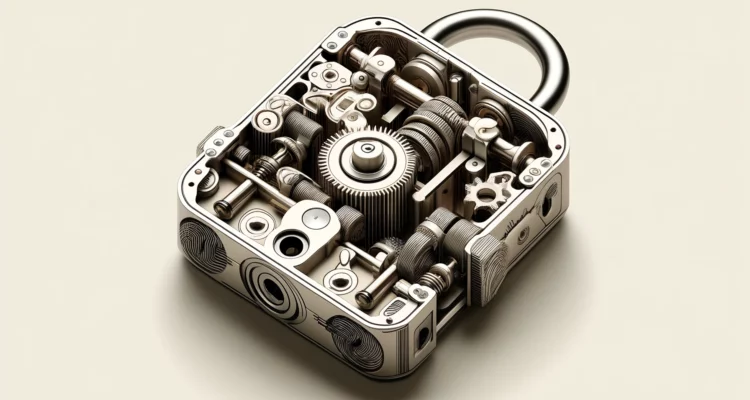Mastering Key Duplication: A Guide For Every Homeowner

Step into a world where the safety of your home and the well-being of your loved ones are treated with the utmost importance. From the strength of your locks to the innovation of smart home technologies, and the proactive measures you can take to avoid potential threats, this guide illuminates the path to not only safeguarding your physical assets but also ensuring the peace of mind that comes with knowing your family is protected. Let’s explore together how you can elevate the security of your dwelling, making it a safe haven for you and your loved ones.
Understanding the Basics of Key Duplication
Key duplication is a common and often necessary task for homeowners and renters alike. Whether you’ve just moved into a new home, want to give a family member access, or simply need a spare, duplicating your keys is a practical step towards greater convenience and security.
The process of key duplication
The process of key duplication is relatively straightforward. It involves creating a new key that matches the exact shape and size of an original key. The duplicator uses a machine to trace the pattern of the original key and cut a blank key to match. This process ensures that the new key will work just as well as the original in locks for which it is intended.
Types of keys and their duplication restrictions
Not all keys are created equal, and some come with specific duplication restrictions. For example, keys marked “Do Not Duplicate” or those that are part of a patented key system typically require authorization from the key’s owner or proof of ownership to be duplicated legally. Additionally, certain high-security keys may only be duplicated by specific locksmiths or manufacturers.
Tools and machines used in key duplication
Key duplication is performed using specialized tools and machines. These range from manual devices, where the locksmith physically traces the original key to duplicate it, to fully automated machines that can scan and duplicate a key with minimal human interaction. The type of machine used often depends on the complexity of the key and the duplication restrictions in place.
Why Duplicate Keys?
Key duplication offers several benefits, from everyday convenience to essential emergency preparedness.
Convenience and accessibility
Having multiple copies of your house keys can significantly increase convenience and accessibility. It allows you to provide spare keys to family members, housekeepers, or pet sitters, ensuring that those who need access to your home have it.
Emergency preparedness
In emergencies, having spare keys can make a huge difference. Whether it’s getting locked out of your house or needing someone to check on your home while you’re away, having a duplicate key can save time and reduce stress.
Supporting multiple household members
For households with multiple members, duplicate keys are almost a necessity. They ensure that everyone who lives in the home has easy access without needing to wait for someone else to open the door
Choosing a Key Duplication Service
When it comes time to duplicate a key, you have a few different options.
Local locksmiths versus hardware stores
Local locksmiths often provide more specialized services and can handle more complex key duplication tasks, including those with restrictions or high-security keys. On the other hand, hardware stores may offer quicker services for standard keys at possibly lower prices.
Online key duplication services
Online services provide a convenient way to duplicate keys without leaving your home. You simply mail your key to the service, and they’ll send back the original along with duplicates. However, this method may not suit everyone, especially when dealing with restricted or high-security keys.
Evaluating the reliability and quality of services
When choosing a key duplication service, consider the reliability, reputation, and quality of the service. Look for reviews, ask for recommendations, and consider the type of key you need duplicated to make the best choice for your needs.
DIY Key Duplication
You might also consider duplicating keys on your own, though it comes with risks and limitations.
Understanding the risks and limitations
DIY key duplication can result in imperfect copies that might not work properly or could even damage your locks. It’s important to understand the risks and weigh them against the cost and convenience of professional key duplication.
Tools required for DIY key duplication
To duplicate a key on your own, you’ll need specific tools, including a key duplicator machine, which can be expensive. You also need a certain level of skill and understanding to use these tools effectively, making DIY duplication not practical for everyone.
Step-by-step guide to duplicating a key at home
- Acquire a blank key that matches the type of key you’re duplicating.
- Secure the original key and the blank in the duplicator’s vice grips.
- Adjust the machine’s guide to ensure the keys are aligned.
- Turn on the machine and carefully guide the cutter along the original key to cut the blank.
- Remove any burrs or metal shavings from the duplicated key with a file.
This process requires precision and care to avoid damaging the key or the machine.
Smart Keys and Electronic Fobs
Advancements in home security have led to the introduction of smart keys and electronic fobs, which offer enhanced security features beyond traditional mechanical keys.
Differences between mechanical keys and electronic keys
Mechanical keys work through physical notches, ridges, and patterns that match with the corresponding lock. Smart keys and electronic fobs, however, use digital signals to unlock doors, providing an added layer of security and convenience.
How to duplicate smart keys and electronic fobs
Duplicating smart keys and electronic fobs generally requires specialized equipment and knowledge. For many models, only the manufacturer or an authorized dealer can create duplicates. However, newer technologies and services are making it easier for homeowners to obtain duplicates more conveniently.
Challenges and solutions in duplicating modern keys
Duplicating modern keys can be challenging due to their advanced security features and proprietary technology. However, as technology advances, so do solutions for key duplication. Some services can clone the digital signature of smart keys and fobs, although it’s essential to ensure this is done within legal and security guidelines.
Key Duplication Costs
The cost of key duplication can vary widely based on several factors.
Factors affecting the cost of key duplication
The type of key, the duplication process used, and any security features or restrictions can all affect the cost. High-security keys or those requiring special authorization typically cost more to duplicate than standard keys.
Estimating the cost of duplicating various types of keys
Standard keys are generally inexpensive to duplicate, often costing just a few dollars. However, smart keys, electronic fobs, and high-security keys can cost significantly more, sometimes up to several hundred dollars.
Saving money on key duplication without compromising security
To save money, compare prices between different services and check if generic versions of your key are available. However, make sure not to compromise your key’s security features in the pursuit of saving money.
The Importance of Key Quality
Key quality plays a crucial role in the security and longevity of your locks.
Key material and durability
High-quality keys are typically made from durable materials that resist bending or breaking. The material can also affect the key’s resistance to wear and tear over time.
How key quality affects lock longevity
Using well-made keys can help preserve your locks by reducing wear on the locking mechanism. Conversely, poor-quality keys can damage locks and may need to be replaced more frequently.
Identifying high-quality keys
High-quality keys often have a more substantial, heavier feel and are made by reputable manufacturers. Look for keys made from brass, steel, or other durable materials to ensure longevity and reliability.
Security Concerns with Key Duplication
Unauthorized key duplication presents a potential security risk.
Unauthorized duplication and potential risks
Allowing someone to duplicate your keys without authorization can compromise your home’s security. It’s essential to control who has access to your keys and to consider the implications of making duplicates.
Maintaining control of your keys
To maintain control, consider using keys with duplication restrictions or adopting a key control policy where keyholders are responsible for the keys in their possession. Additionally, regularly assessing who has access to your home can help minimize risks.
Solutions for enhancing key security
One solution is to upgrade to high-security locks that are more resistant to picking, bumping, and unauthorized duplication. Alternatively, adopting smart locks or keyless entry systems can provide a higher level of security and control.
High-Security Locks and Key Control Systems
For those seeking the ultimate in home security, high-security locks and key control systems offer advanced protection.
Understanding high-security lock mechanisms
High-security locks feature complex mechanisms that are pick-resistant, drill-resistant, and generally tougher to bypass than standard locks. They often come with keys that are patented and require specialized equipment to duplicate.
Benefits of key control systems
Key control systems help manage who has access to various areas of your home, allowing you to track and control key distribution effectively. These systems are particularly useful for larger homes or properties with multiple points of entry.
Options and considerations for upgrading
When considering an upgrade to high-security locks or a key control system, evaluate the specific security needs of your home and the potential cost. Consulting with a security expert can help you choose the most appropriate and effective options.
Future Trends in Key Duplication and Home Security
Advancements in technology continually reshape the landscape of home security and key duplication.
Technological advancements in key making and duplication
Emerging technologies are making it possible to duplicate keys more accurately and securely. Innovations are also leading to new types of keys and locks, such as biometric and smartphone-operated locks, that offer enhanced security features.
Smart home integration and keyless entry systems
The integration of keyless entry systems with smart home technology is becoming increasingly popular. These systems offer convenience and improved security by allowing homeowners to remotely control access to their homes.
The role of biometrics in home security
Biometric technology, which includes fingerprint and facial recognition, is becoming more commonly used in home security. This technology offers a high level of security, as access is granted based on unique biological traits, making unauthorized entry extremely difficult.
In conclusion, understanding key duplication and the wider world of home security is crucial for maintaining the safety and convenience of your home. Whether opting for traditional key duplication, exploring high-tech options, or upgrading to high-security systems, being informed will help you make the best choices for your needs. Remember, the goal is to balance convenience with security to ensure that your home remains a safe haven for you and your loved ones.




